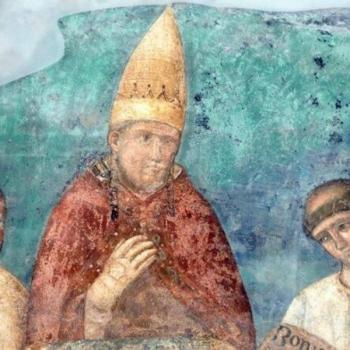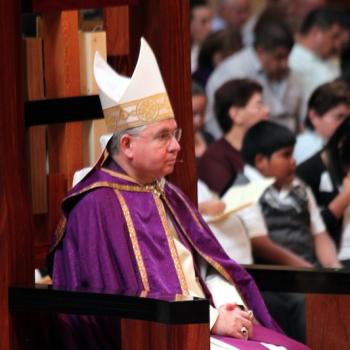Today I visited the Thomson, Georgia house of Tom Watson, an influential Georgia statesman, journalist and politician of the late 19th and early 20th centuries. I remember studying the impact he had in Georgia politics while I was in college, but most notably I remember reading some of his venomous anti-Catholic writings.
Watson was a member of the Georgia General Assembly, the US House of Representatives and for the last two years of his life a member of the US Senate. His political views were populist and was nominated as the Populist Party’s vice presidential candidate in 1896.
Later in his life he became an avid anti-Catholic, anti-Semitic and racist writing tormented tracts and books. His anti-Catholic rhetoric did not go unnoticed by Bishop Keiley of Savannah. In 1916 the bishop called for the foundation of the Catholic Laymen’s Association of Georgia for the purpose of counteracting the anti-Catholic campaign started by Tom Watson. The chairman of the Association J. J. Farrell of Augusta wrote in 1917, “We are suffering and enduring such a campaign of misinterpretation as would, if not checked, inevitably render Georgia impossible as a place in which our children could live.” (The Fortnightly Review, Arthur Preuss, 1917, pg. 309). In conjunction with the Knights of Columbus, the Association distributed over 115,000 pamphlets throughout the state on topics such as “Catholic Belief” “Catholics and the Confederacy” and “Catholics and the Bible.”
Watson’s fears regarding the Catholic Church were mostly political in nature. He saw the Church as a foreign power that wanted to strip away the liberties citizens enjoyed in the United States and endanger the prominence of Protestantism.
Here are a few samples of Watsons’ writings which show his irrational fear towards the Catholic Church:
“The Roman Catholic Hierarchy! The most damnable group of interlocked secret societies that ever met in darkness, and took hellish oaths to a compact of greed, and lust, and crime, for the sordid purpose of grasping uncontrollable power, boundless wealth, and a never ceasing supply of the most enjoyable women.”
“Religion? These secret societies, which constitute the real machinery of the Roman Catholic Church, have the same sort of religion that Satan would have, were he able to leave hell, and take human shape on earth”
[from The Roman Catholic Hierarchy (Thomson, Ga: Jeffersonian Publishing Co. 1915].
A Sister of Saint Joseph told me years ago that Tom Watson’s daughter attended the Catholic boarding school in Washington, Georgia run by the Sisters of Saint Joseph (later to become Mount Saint Joseph in Augusta at the invitation of the same J.J. Farrell from above, which later became Saint Mary on the Hill Elementary School). He must have not thought we Catholics were so terrible.
Watson wrote dark stories of inappropriate happenings in convents and scores of accounts about misbehaving priests.
After learning about Watson almost fifteen years ago, every time I visited the Georgia capitol in Atlanta I would look his statue in the capitol grounds with apprehension. I never thought it needed to be removed since he remains an influential Georgia historical figure, but I would think how the presence of the statue was a contradiction just as the views of Watson oftentimes were contradictory. I wasn’t too sad when suddenly a crew removed Watson’s statue last November and relocated it to a nearby park. The Atlanta Journal Constitution reported the happening and described Watson with these words:
“Watson, a former state lawmaker, congressman and U.S. senator, was viewed by many as a hero when his statue was dedicated in 1932. He came to prominence in the late 1800s, championing the needs of poor farmers and sharecroppers of all races. That support waned with time. Watson, who owned a weekly newspaper, endorsed taking the vote from African-Americans and launched anti-Jewish and anti-Catholic diatribes in his editorials.”
Certainly a controversial figure in Georgia history, the New Georgia Encyclopedia summarizes his memory by stating: “he is remembered for being a voice for Populism and the disenfranchised, and later in life, as a southern demagogue and bigot.”
Pictures are mine, all rights reserved.


.jpg)










